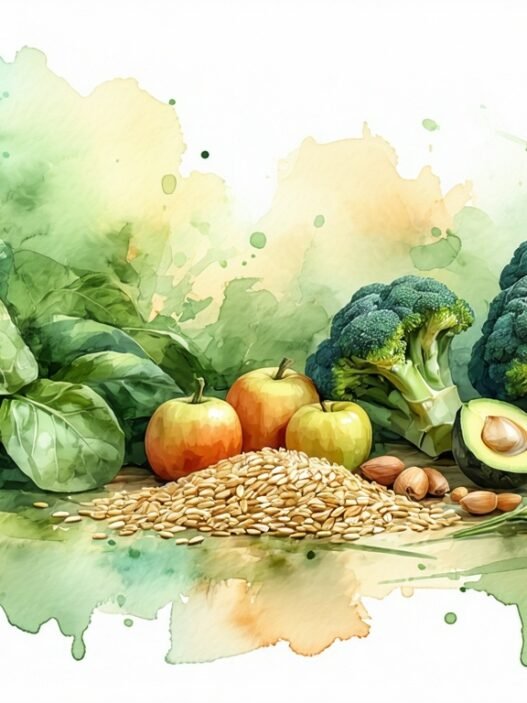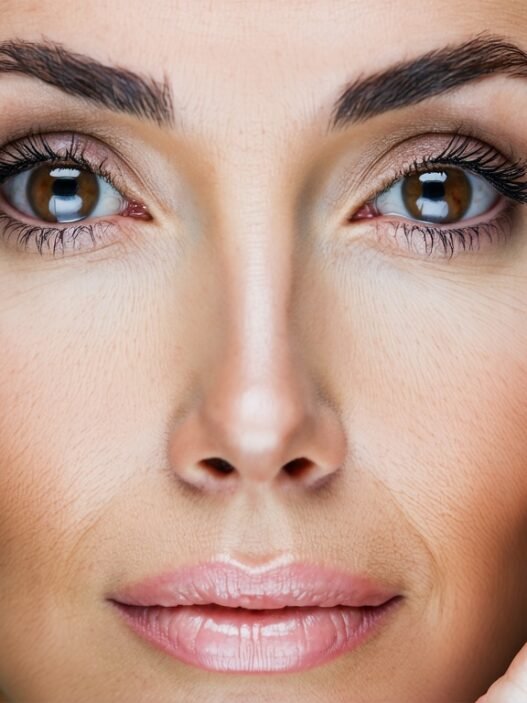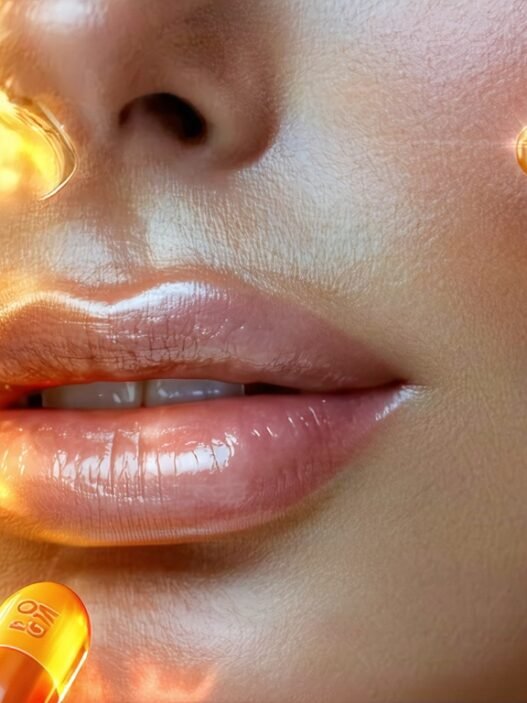CoQ10: The Anti-Aging Powerhouse
Understanding CoQ10 Benefits
Coenzyme Q10, commonly known as CoQ10, is a crucial compound found throughout the body, predominantly in the heart, liver, kidney, and pancreas. It plays a key role in generating energy within cells and serves as a potent antioxidant to protect cells against oxidative stress, which can accelerate the aging process.
CoQ10’s benefits for skin elasticity are particularly noteworthy. Its antioxidant properties help neutralize free radicals, diminishing oxidative damage caused by UV exposure and environmental pollutants. As we age, the natural levels of CoQ10 in our skin decrease, leading to visible signs of aging like fine lines and wrinkles. Applying CoQ10 topically can help replenish these levels, promoting firmer, more youthful skin.
By addressing the external factors that contribute to skin aging, CoQ10 can help reduce wrinkle depth and improve skin texture, making it an essential component in anti-aging skincare routines. Clinical studies have shown significant improvements in skin elasticity and reduction in facial roughness with the use of CoQ10-enriched products (PubMed Central). For more information on how CoQ10 can benefit your skin, check out our detailed article on coq10 benefits for skin.
Importance of CoQ10 in Cellular Metabolism
CoQ10 is fundamental to cellular metabolism and energy production. It is primarily located within the mitochondria, the powerhouse of the cell, where it facilitates the production of adenosine triphosphate (ATP), the energy currency of the cell. This energy is vital for maintaining various cellular functions and contributing to overall vitality.
As an antioxidant, CoQ10 tackles oxidative stress, which can impair mitochondrial function and lead to metabolic disorders such as diabetes and insulin resistance. Research indicates that CoQ10 supplementation may enhance insulin sensitivity and help regulate blood sugar levels (Healthline). This is particularly beneficial for aging adults, as it supports metabolic health and reduces risks associated with oxidative damage.
For more in-depth insights into how CoQ10 supports mitochondrial function and overall cellular health, visit our article on coq10 and mitochondrial function. Those interested in integrating CoQ10 into their daily regime can explore various coq10 supplements for energy available on the market.
Understanding the multifaceted benefits of CoQ10 can transform your approach to anti-aging and vitality. Whether through topical application or dietary supplementation, incorporating CoQ10 can be a pivotal step in maintaining youthful and healthy skin. For a comprehensive look at the best CoQ10 products, check out our guide to coq10 skin care products and discover how CoQ10 can enhance your anti-aging skincare routine.
CoQ10 and Skin Health
Exploring the connection between CoQ10 and skin health reveals the significant benefits this compound brings, particularly for those concerned with aging and skin vitality.
Role of CoQ10 in Skin Defense
Coenzyme Q10 (CoQ10) is a naturally occurring compound present in every cell of the body. It plays a crucial role in generating energy and functions as a potent antioxidant. This compound is essential for protecting cells from oxidative damage.
As we age, the natural levels of CoQ10 in our skin decrease, making the skin more susceptible to damage from free radicals and environmental stressors. When applied topically, CoQ10 can penetrate the skin layers, providing antioxidant protection and boosting the skin’s natural repair processes. This increased defense helps preserve the skin’s collagen and elastin, crucial components for maintaining skin firmness and elasticity.
Impact of CoQ10 on Skin Aging
The impact of CoQ10 on skin aging is significant, as it addresses various aging signs such as wrinkles, fine lines, and dullness. Topical application of CoQ10 has been shown to downregulate the activity of key enzymes involved in collagen degradation, known as matrix metalloproteinases (MMPs). These enzymes, when overactive, can break down collagen fibers, leading to loss of skin firmness and development of wrinkles (JCAD).
CoQ10 also plays a vital role in stabilizing mitochondrial activity, which is essential for cell energy production and overall skin health. By supporting mitochondrial function, CoQ10 helps maintain cellular vitality, leading to improved skin regeneration and rejuvenation (City Skin Clinic).
Scientific studies have demonstrated that CoQ10 can significantly reduce the depth of wrinkles and enhance skin elasticity. This improvement in skin appearance is attributed to the compound’s ability to neutralize free radicals, which are known to accelerate the aging process. For more comprehensive insights, explore the anti-aging properties of CoQ10.
To summarize the benefits of CoQ10 for skin aging:
| Benefit | Description |
|---|---|
| Reduction of Wrinkle Depth | CoQ10 helps to minimize fine lines and wrinkles by protecting collagen fibers. |
| Enhanced Skin Elasticity | By supporting collagen integrity, CoQ10 improves skin firmness. |
| Antioxidant Protection | CoQ10 neutralizes free radicals, preventing oxidative damage. |
| Promotes Skin Regeneration | Supports mitochondrial function, aiding in skin cell rejuvenation. |
For individuals looking to incorporate CoQ10 into their skincare routine, various CoQ10 skincare products are available. Choosing the right product can help enhance skin vitality and maintain a youthful appearance. For a deeper understanding of CoQ10’s benefits, explore our section on coq10 for skin elasticity and coq10 and skin aging.
The Science Behind CoQ10
Understanding the role of CoQ10 in skin health involves exploring its impact on oxidative stress reduction and mitochondrial function. These factors contribute significantly to the anti-aging benefits of CoQ10.
CoQ10 and Oxidative Stress Reduction
CoQ10, in its reduced form, acts as a potent antioxidant. It stabilizes cellular membranes and protects against the peroxidation of phospholipids. This antioxidative property helps to mitigate the effects of reactive oxygen species (ROS), which are harmful byproducts of cellular metabolism.
Oxidative stress is a major contributing factor to skin aging. It leads to the activation of the MAPK pathway, which stimulates the production of matrix metalloproteinases (MMPs), including collagenases. These enzymes degrade collagen fibers, resulting in the loss of skin elasticity and the formation of wrinkles.
CoQ10 plays a critical role in regenerating oxidized vitamin C and vitamin E, further enhancing its antioxidant capabilities. By neutralizing free radicals and inhibiting the MAPK pathway, CoQ10 helps to maintain skin integrity and reduce the visible signs of aging.
For more information on how CoQ10 benefits skin health, visit our article on coq10 and skin health.
| Benefit | Mechanism |
|---|---|
| Neutralizes free radicals | Slows chain propagation of ROS (WebMD) |
| Protects collagen fibers | Inhibits MMP production, preventing collagen degradation (City Skin Clinic) |
Mitochondrial Function and CoQ10
CoQ10 is integral to mitochondrial function. It is involved in the electron transport chain within mitochondria, which is crucial for the production of adenosine triphosphate (ATP), the primary energy currency of cells. Efficient ATP production is essential for maintaining cellular energy levels and overall cell function.
In skin cells, optimized mitochondrial function supported by CoQ10 helps to sustain cellular activities, including repair and regeneration. As skin cells age, mitochondrial function tends to decline, leading to decreased energy production and increased oxidative damage.
By enhancing mitochondrial efficiency, CoQ10 supports the energy needs of skin cells, promoting youthful and vibrant skin. Improved mitochondrial function also means better defense against environmental stressors and more effective cellular repair mechanisms.
To explore more about the connection between CoQ10 and mitochondrial function, check out our article on coq10 and mitochondrial function.
For optimal results in using CoQ10 for skin health, consider incorporating coq10 skin care products into your daily regimen. Additionally, understanding the appropriate coq10 dosage for anti-aging can further enhance its benefits.
By reducing oxidative stress and supporting mitochondrial function, CoQ10 emerges as a crucial component for maintaining skin elasticity and combating the visible signs of aging. For a deeper dive into how CoQ10 can benefit your skin, visit our comprehensive guide on coq10 and skin elasticity.
CoQ10 for Skin Rejuvenation
CoQ10, or Coenzyme Q10, plays a vital role in skin rejuvenation. Its potent antioxidant properties and participation in cellular energy production make it an effective tool for fighting signs of aging.
Topical Application of CoQ10
Topical application of CoQ10 can penetrate the skin to provide deep antioxidant protection and support natural skin repair processes (City Skin Clinic). This method targets various aspects of aging, including wrinkles, fine lines, and loss of elasticity.
Benefits of topical CoQ10 include:
- Enhancing skin firmness
- Reducing the depth of wrinkles
- Protecting against oxidative stress
- Stabilizing mitochondrial activity
Consistent application of CoQ10 skincare products can lead to improved skin health and a rejuvenated appearance. For those interested in incorporating it into their routine, check out our guide on coq10 skin care products.
Clinical Studies on CoQ10 Efficacy
Numerous clinical studies highlight the efficacy of CoQ10 in combating skin aging. A significant study conducted over four weeks showed marked improvements in facial skin roughness and wrinkles, demonstrating the benefits of CoQ10 for aging skin.
Key findings from clinical studies include:
| Study Duration | Key Findings |
|---|---|
| 4 weeks | Improvement in facial skin roughness and wrinkle depth |
| 8 weeks | Enhanced skin firmness and elasticity |
| 12 weeks | Improved skin hydration and reduced oxidative stress |
CoQ10 helps stabilize mitochondrial function, essential for maintaining healthy, youthful skin. It also counters oxidative stress by neutralizing free radicals, thus preserving skin integrity and slowing the aging process.
For a deeper dive into how CoQ10 can elevate your skincare regimen, explore our article on coq10 and skin rejuvenation. By understanding its benefits and incorporating it thoughtfully, one can achieve revitalized, younger-looking skin.
For further information about CoQ10’s impacts on the skin, visit our sections on coq10 benefits for skin, coq10 for skin elasticity, and coq10 for anti-aging skincare.
CoQ10: Anti-Aging Evidence
Examining the anti-aging efficacy of CoQ10, we find substantial evidence supporting its role in enhancing skin elasticity and reducing signs of aging. Here, we focus on its impact on wrinkle depth and antioxidative status.
Reduction of Wrinkle Depth
Topical application of CoQ10 has been shown to significantly reduce wrinkle depth. Clinical studies reveal that using skincare products containing CoQ10 led to noticeable improvements in skin texture and reduction in wrinkle depth (NCBI). This is primarily due to CoQ10’s ability to boost fibroblast proliferation, enhance mRNA expression of collagen and elastin, and inhibit MMP expression.
| Measurement | Pre-Treatment | Post-Treatment |
|---|---|---|
| Wrinkle Depth (micrometers) | 30 ± 5 | 20 ± 4* |
*Results based on clinical study data (JCAD)
Key Findings:
- Increased fibroblast activity
- Enhanced collagen and elastin synthesis
- Inhibited matrix metalloproteinase (MMP) expression
For more on how CoQ10 helps with wrinkle reduction, visit our article on coq10 and wrinkles and coq10 for youthful skin.
Improved Antioxidative Status
CoQ10 also significantly improves the antioxidative status of the skin. By reducing oxidative stress, CoQ10 helps maintain skin integrity and reduces the signs of aging caused by environmental factors like UV radiation (PubMed Central). CoQ10’s antioxidant properties are critical in protecting skin cells from free radical damage, thus promoting healthier, more resilient skin.
| Condition | Pre-Treatment | Post-Treatment |
|---|---|---|
| Oxidative Stress Markers (relative units) | 10.0 ± 1.2 | 5.2 ± 0.8* |
*Results based on clinical study data (NCBI)
Key Benefits:
- Reduced oxidative stress
- Protection against UV-induced damage
- Stabilization of mitochondrial function
To learn more about the antioxidative benefits of CoQ10, visit our articles on coq10 antioxidant benefits and coq10 for skin elasticity.
Research conclusively shows that CoQ10 is a potent ingredient in combatting the signs of aging, making it a valuable addition to any skincare routine targeting skin elasticity and wrinkles. For more insights on using CoQ10 in skincare, explore coq10 benefits for skin and coq10 skin care products.
Using CoQ10 Skincare Products
Benefits of CoQ10 Supplementation
CoQ10 is a powerful ally in the battle against aging skin. Incorporating CoQ10 into your skincare routine provides several benefits that contribute to skin elasticity and youthful appearance. This compound’s primary function is as a cofactor in mitochondrial enzyme pathways, enhancing cellular respiration and energy production.
-
Improves Cellular Oxidative Status: CoQ10 acts as an antioxidant, neutralizing free radicals that damage skin cells. This leads to a reduction in oxidative stress, which is a leading cause of skin aging.
-
Enhances Mitochondrial Function: By stabilizing mitochondrial function, CoQ10 protects against UV radiation and other environmental stressors, ensuring healthier skin cells.
-
Promotes Collagen Production: Increased CoQ10 levels boost fibroblast proliferation and collagen expression, which are crucial for maintaining skin’s firmness and elasticity.
-
Skin Vitality and Resilience: Regular use of CoQ10 skincare products can restore skin’s natural vitality and resilience, making it ideal for those aged 30 and above aiming for vibrant, youthful skin.
Considerations for CoQ10 Application
To fully benefit from CoQ10, it’s important to consider several factors when selecting and using CoQ10 skincare products:
-
Product Formulation: Look for products containing ubiquinone, the oxidized form of CoQ10, known for its stability and effectiveness in skincare formulations.
-
Application Method: CoQ10 is effective when used topically. Apply products containing CoQ10 after cleansing and toning, but before heavier creams and sunscreens to ensure proper absorption.
-
Daily Use: Consistency is key. Make CoQ10 a regular part of your skincare regimen for best results in improving (skin elasticity) and combating signs of aging.
-
Pair with Other Antioxidants: Using CoQ10 in conjunction with other antioxidants can amplify its effects. Ingredients like vitamin C and E work synergistically with CoQ10 to enhance skin protection and repair.
-
Sensitivity and Allergies: Perform a patch test before using any new CoQ10 product to ensure you don’t have an allergic reaction. Although CoQ10 is generally well-tolerated, it’s always better to be cautious.
-
SPF Protection: While CoQ10 offers some protection against UV damage, using a broad-spectrum sunscreen daily is essential for comprehensive skin protection.
| Consideration | Description |
|---|---|
| Product Formulation | Prefer ubiquinone for its stability. |
| Application Method | Use topically, before heavier creams. |
| Daily Use | Consistency ensures best results. |
| Pair with Antioxidants | Enhance effects with vitamin C and E. |
| Sensitivity | Perform a patch test. |
| SPF Protection | Use sunscreen daily. |
By understanding and integrating these considerations, you can make the most out of CoQ10 skincare products, ensuring your skin remains youthful and elastic. For more information on CoQ10 and its benefits, visit our pages on coq10 and skin elasticity and coq10 and skin rejuvenation.




















